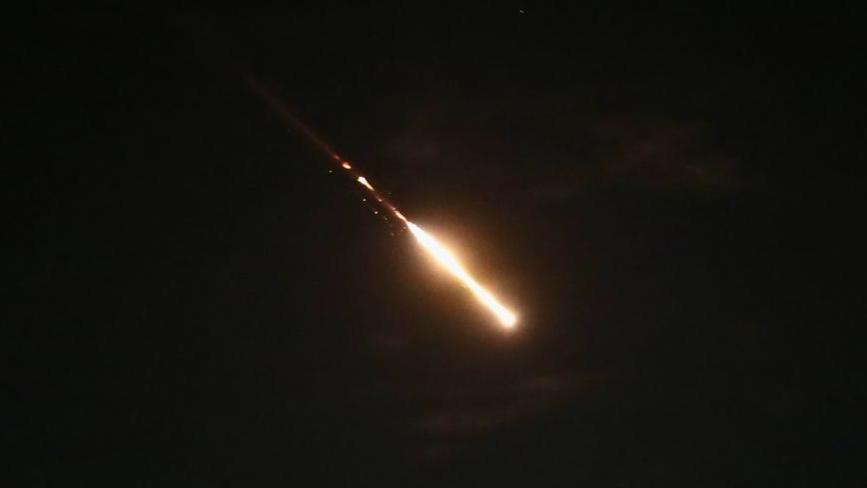
The possibility of a severe energy crisis has increased amid ongoing Middle East tensions and potential heightened geopolitical conflict between Israel and Iran, despite a lack of any significant impact on crude oil prices so far, said an expert.
While Iran has stated that the airstrikes launched at Israel are a limited retaliation for Tel Aviv's earlier bombing of an Iranian consulate in Syria, Israel has not ruled out a heightened confrontation, said Kazuyuki Hamada, an international political economy scholar.
Senior officials from Iran's Islamic Revolutionary Guard Corps have mentioned the possibility of blocking the Strait of Hormuz in case of further Israeli attacks.
If the strait, through which 20 percent of the world's crude oil passes, is blocked, it would deal a devastating blow to the Japanese economy, said Hamada, noting that Japan relies on the Middle East for 97 percent of its crude oil imports.
"In anticipation of such a scenario, Japan has established storage facilities at nine locations nationwide and ensured the capability to cope for up to 137 days if crude oil imports were to completely cease. However, in the event of an unprecedented emergency, the effectiveness of such measures remains uncertain," Hamada said.
If Israel were to engage in an attack against Iran, the likelihood of retaliatory escalation from Iran would increase, further exacerbating the situation, he said.
"It is imperative to make diplomatic efforts to prevent further escalation of the conflict. If tensions continue to escalate, leading to higher oil prices and a stronger dollar, Japan — with its high dependence on energy imports — will be engulfed in imported inflation," Hamada added.
Before Iran's retaliation against Israel, crude oil prices continued to rise from mid-March because of demand factors such as the stabilization of the US economy and the recovery of China's manufacturing sector, said Hajime Yoshimoto, a senior economist at Nomura Securities.
Iran's retaliatory airstrikes thus reminded oil and commodity market participants of potential supply shocks, where not only demand but also supply issues drive oil and commodity prices higher. So, importers of resources will face an energy price hike and a shrinking current account surplus, said Yoshimoto.
"If Israel retaliates and Iran strikes back, the conflict escalation will cause a disturbance for oil tankers passing through the Strait of Hormuz and trigger the risk of destruction of oil wells and petroleum processing plants in the Persian Gulf region. Resource importers, such as Asian countries, will face oil and natural gas supply shortages," said Yoshimoto.
"Since the outbreak of the Russia-Ukraine conflict in 2022, Japan has had limited oil imports from Russia and depended heavily on Middle Eastern countries. So, an escalation of the conflict in the Middle East will have a more serious negative impact on Japan than on other Asian countries in terms of inflation and the current account," he said.
While caution is warranted as tensions between Israel and Iran escalate, Iran's Islamic Revolutionary Guard Corps has signaled that its retaliatory attacks are complete, suggesting further action is unlikely without a strong Israeli response, Nomura said in a research report issued on Monday.
However, if Israel adopts a hardline stance, market concerns could heighten, the report noted, urging caution regarding Israel's potential next move.
The future trajectory of crude oil futures prices depends on Israel's response, but the risk of a sharp increase in prices is considered low if Israel refrains from retaliating, Nomura analysts said.


